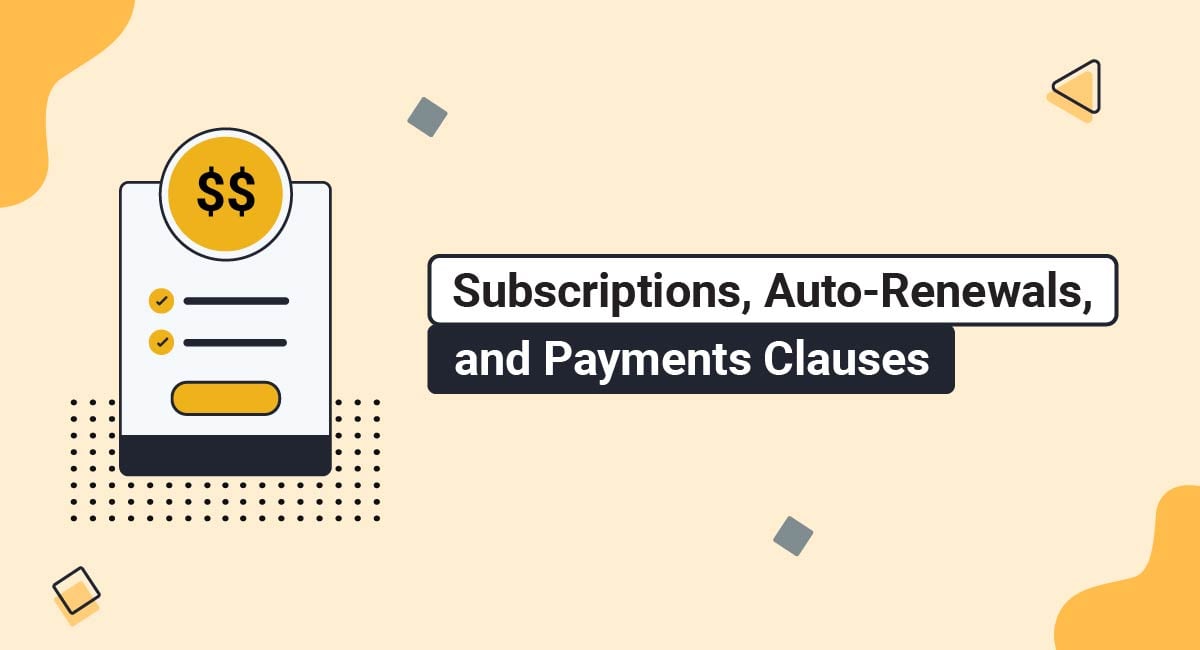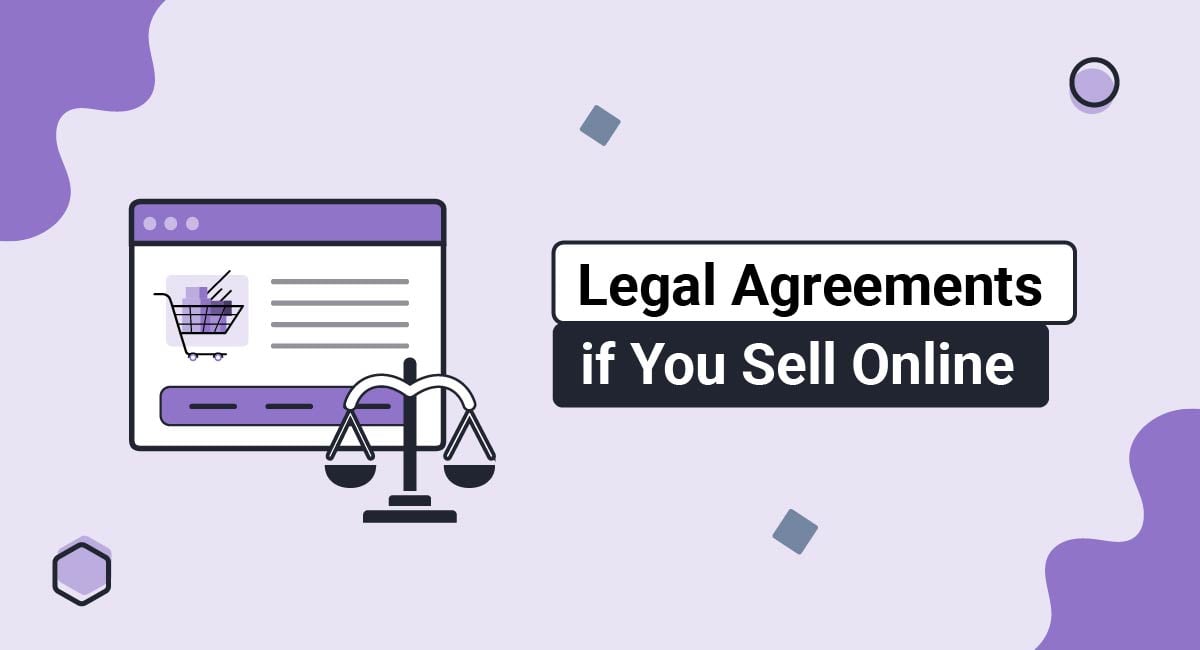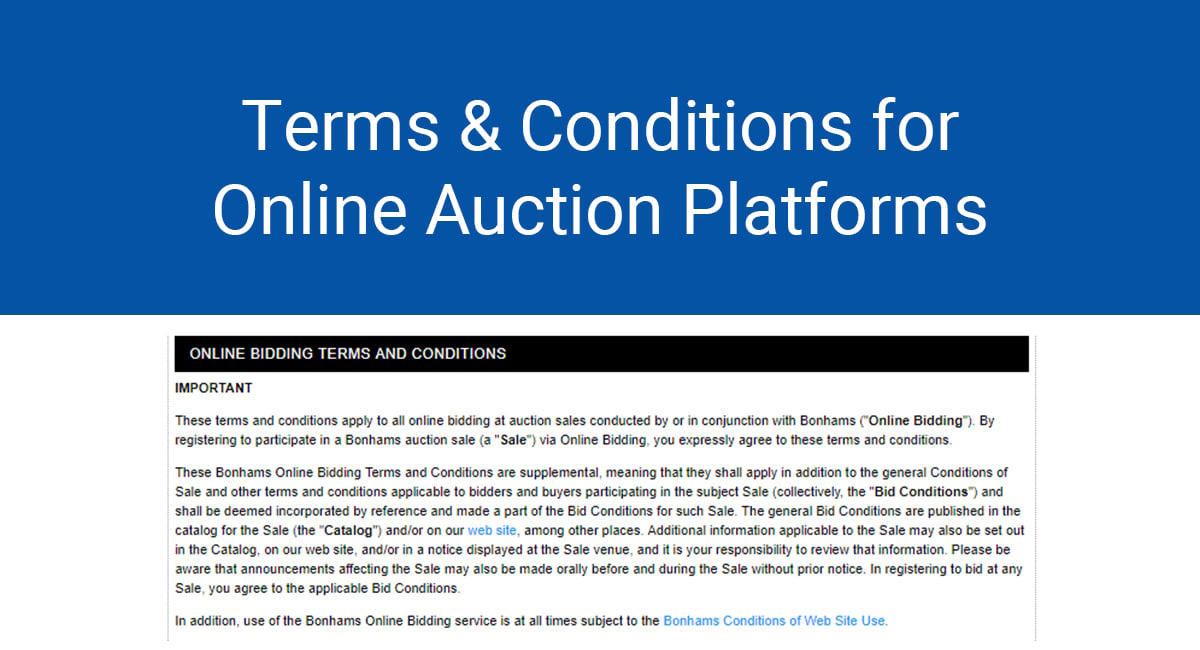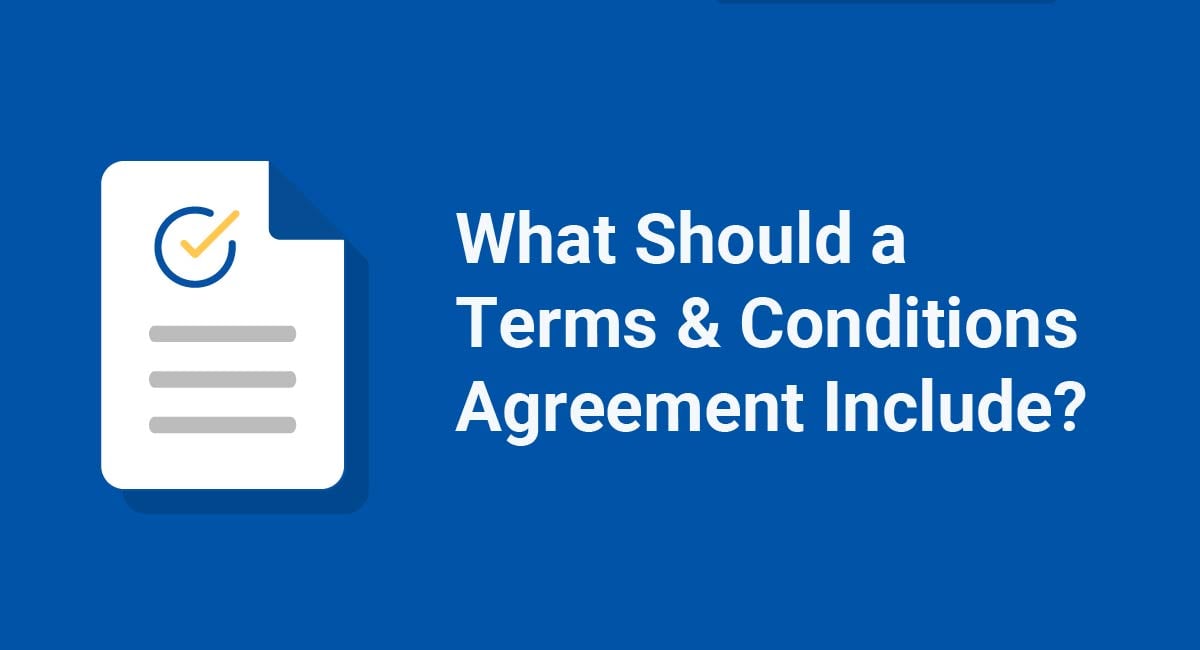Subscriptions, auto-renewals, and payments clauses in a Terms and Conditions agreement or other user agreement all contain essential information that any business that takes payments online or provides any kind of service that will automatically charge a customer's account on a regular basis needs to share with its users.
Whether your business sells SaaS, subscription kits or boxes, or digital services, you should make sure that you include subscriptions, auto-renewals, and payments clauses within your legal agreements so that users clearly understand what they are signing up for and how your services work.
This article will take you through what these clauses are used for, when you should use them, where you should put them, and what kind of information they should include.
Our Terms and Conditions Generator makes it easy to create a Terms and Conditions agreement for your business. Just follow these steps:
-
At Step 1, select the Website option or the App option or both.
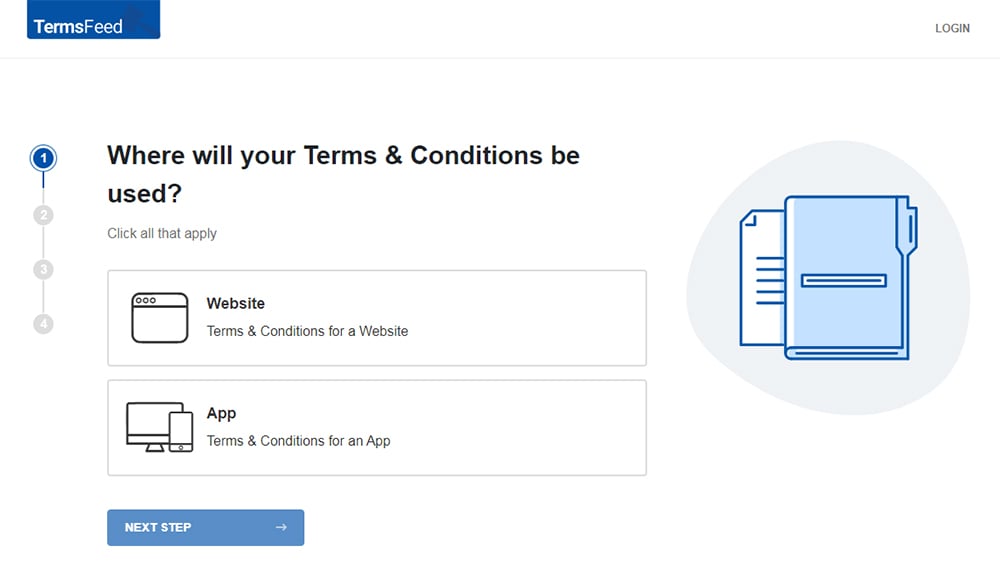
-
Answer some questions about your website or app.
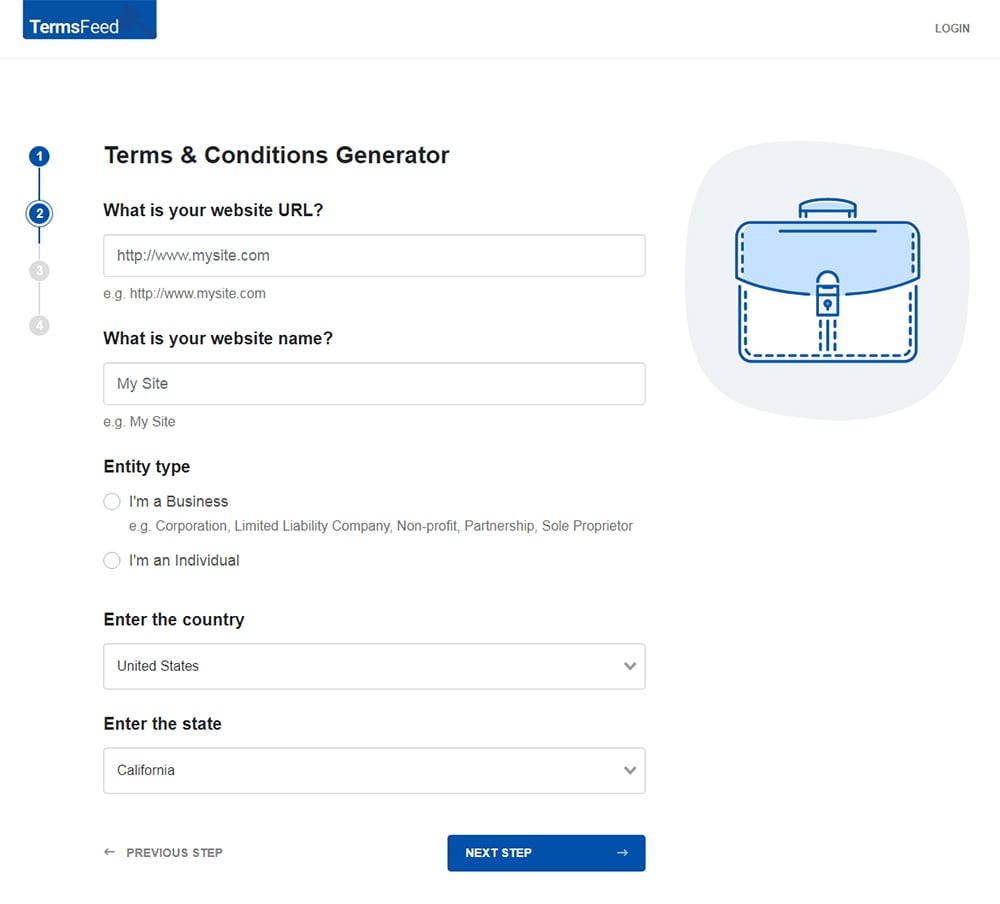
-
Answer some questions about your business.
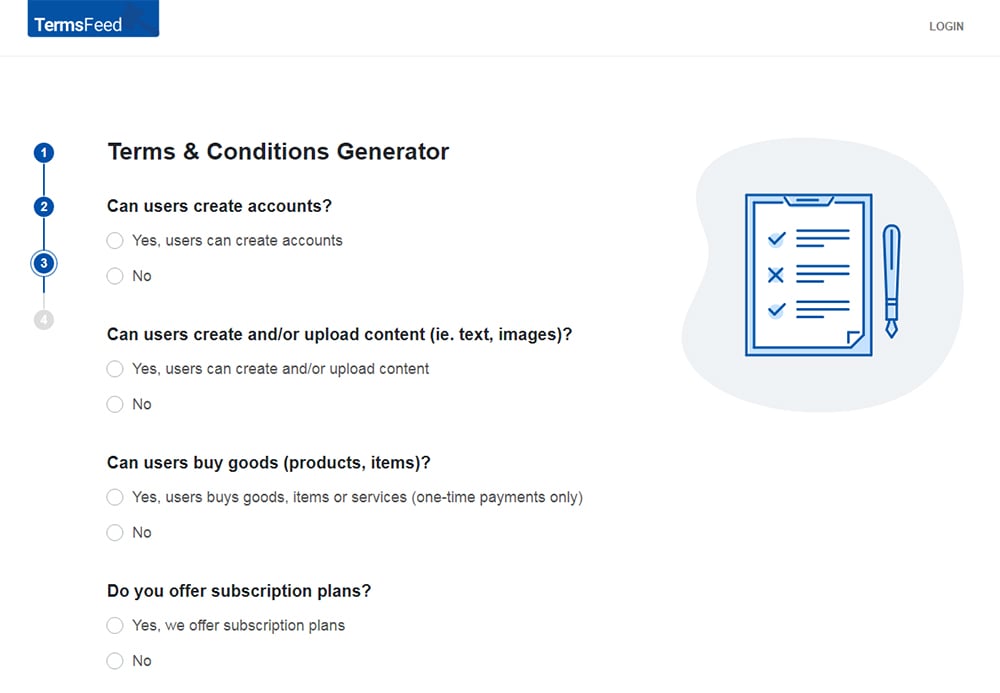
-
Enter the email address where you'd like the T&C delivered and click "Generate."
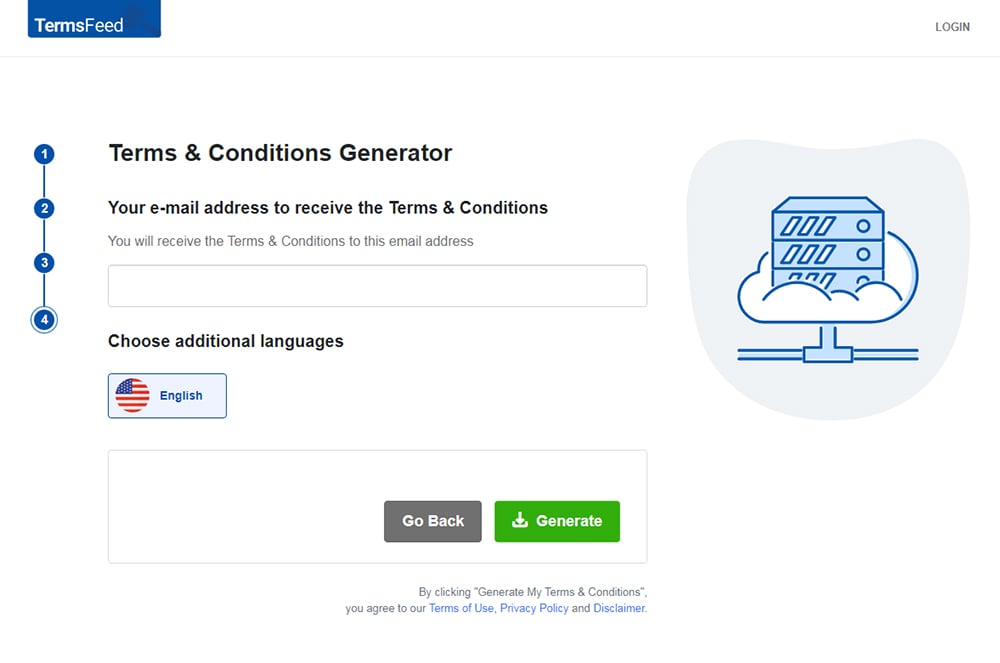
You'll be able to instantly access and download the Terms & Conditions agreement.
- 1. What are Subscriptions, Auto-Renewals, and Payments Clauses?
- 2. When Should You Use Subscriptions, Auto-Renewals, and Payments Clauses?
- 2.1. Subscriptions Clause
- 2.2. Auto-Renewals Clause
- 2.3. Payments Clause
- 3. How to Write Subscriptions, Auto-Renewals, and Payments Clauses
- 3.1. What to Include in Your Subscriptions Clause
- 3.2. What to Include in Your Auto-Renewals Clause
- 3.3. What to Include in Your Payments Clause
- 4. What Information is Included in a Subscriptions Clause?
- 4.1. Subscription Timeline
- 4.2. Promotional Periods
- 4.3. Stand-Alone Subscription Terms
- 5. What Information is Included in an Auto-Renewals Clause?
- 5.1. Auto-Renewal Billing Terms
- 5.2. Auto-Renewal Period
- 6. What Information is Included in a Payments Clause?
- 6.1. Payment Methods
- 6.2. Canceling a Subscription
- 6.3. Declined Payments
- 6.4. Additional Fees
- 7. Where Should You Put Subscriptions, Auto-Renewals, and Payments Clauses?
- 8. Summary
What are Subscriptions, Auto-Renewals, and Payments Clauses?
Subscriptions, auto-renewals, and payments clauses contain information about what users can expect when they sign up for your services.
This information can include the length of time your subscriptions last, any price changes users need to be aware of after a promotional period ends, how users can cancel their subscriptions, when they can expect an auto-renewal to occur, what payment methods are required for your services, and what happens if a payment method is declined.
When Should You Use Subscriptions, Auto-Renewals, and Payments Clauses?

If you sell subscription products or services, rely on an automatic renewal billing model, or accept payments of any kind, you should make sure to include whichever clauses are relevant to your business.
Subscriptions Clause
You should use a subscriptions clause anytime your business provides a service or product that users must make recurring payments in order to receive.
Auto-Renewals Clause
You should use an auto-renewals clause to explain to users what the time limit is for the use of your service, and whether they can expect any price changes when the service auto-renews, and to let them know that the payment method your business keeps on file will be what is used to charge the auto-renewal fee when it is next due.
Payments Clause
You can include a payments clause whenever your business takes online payments for any of your products or services.
How to Write Subscriptions, Auto-Renewals, and Payments Clauses

When it comes to writing your subscriptions, auto-renewals, and payments clauses, you have a few options. You can hire a lawyer to do it for you (warning-this can get costly!), you can use a service such as TermsFeed's legal agreement Generators or Templates, or you can write your own.
If you decide to go the write-your-own route, there is some basic information that you need to make sure that each clause includes in order to provide your business with legal protection and make sure that your users understand exactly what they are agreeing to when they use your services or products.
After we summarize what each clause should contain, the next chapter of this article will go further into depth on each and show examples to help demonstrate each type of clause.
What to Include in Your Subscriptions Clause
Your subscriptions clause should include information about:
- How long a subscription lasts
- How users can cancel their subscriptions
- What happens after a promotional period for a product or service ends
Depending on the amount of information you need to share, you might decide to do away with the subscriptions clause altogether, and write a distinct Subscriptions Terms document instead.
What to Include in Your Auto-Renewals Clause
You should make sure that your auto-renewals clause includes the following information:
- How your auto-renewal process works
- How long users' subscriptions will continue
- When users will be billed for each auto-renewal
What to Include in Your Payments Clause
Your payments clause should provide information about:
- What methods of payment you accept
- How to cancel a payment
- Any additional fees users might be charged
- Whether payments made can be refunded
- What happens if a payment method is declined
What Information is Included in a Subscriptions Clause?

A subscriptions clause conveys information to users about what they need to agree to in order to subscribe to your business's service. It can be used to describe the period of time a subscription lasts, how users can cancel their subscription, and what happens after a promotional period for a product or service ends.
Subscription terms are often displayed within your Terms of Service, or you can forgo a subscription clause altogether, and create a separate Terms of Service solely for subscribers.
Subscription Timeline
Your subscriptions clause should let users know when their subscription begins and ends.
The ClassPass Platform section of the ClassPass Terms of Use agreement clearly explains the date that a subscription begins, how long each billing cycle is, and how long the subscription continues:

Promotional Periods
If your business uses promotional periods as a marketing tactic then you should use your subscriptions clause to let users know what happens when the promotional period ends.
Spotify's Promotional Terms lets users know that if they don't cancel their Promotional Offer before its Promotional Period ends, then they will be automatically enrolled into its subscription program and charged for the month:
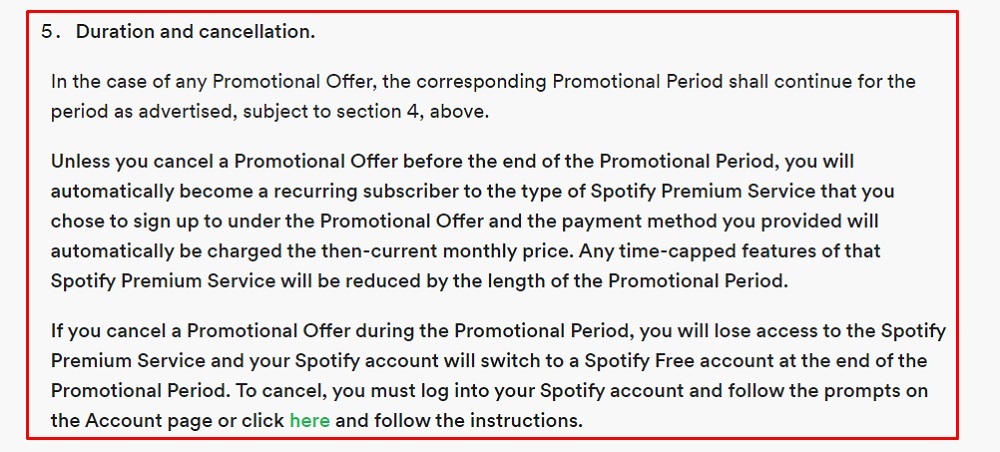
Stand-Alone Subscription Terms
If your business has a lot of subscription information to share, then you might consider replacing your subscriptions clause with a full Subscription Terms document.
While a subscriptions clause is typically added to an existing Terms of Service agreement, some companies such as Printful create a separate Subscription Terms of Service agreement just for the subscription services:
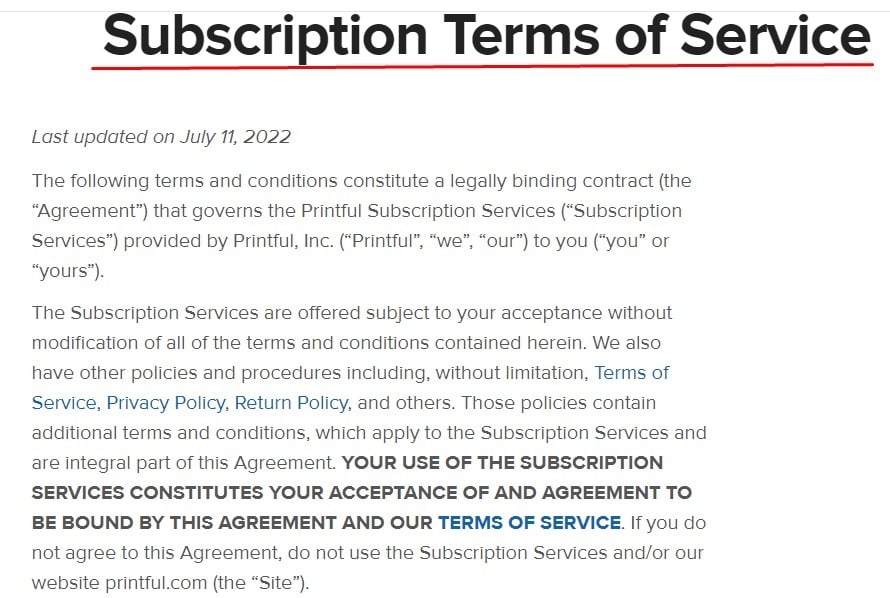
Now let's look at how auto-renewals clauses are constructed and what they aim to do.
What Information is Included in an Auto-Renewals Clause?

An auto-renewals clause explains how your auto-renewal process works, and includes information about how long users' subscriptions will continue and when they will be billed for each auto-renewal.
Auto-Renewal Billing Terms
Your auto-renewals clause should tell users when they can expect to be billed for each auto-renewal.
The Subscription Terms section of Hulu's Terms and Conditions agreement lets users know how long their billing periods are, and explains how users can find out when they will be billed for the next cycle:
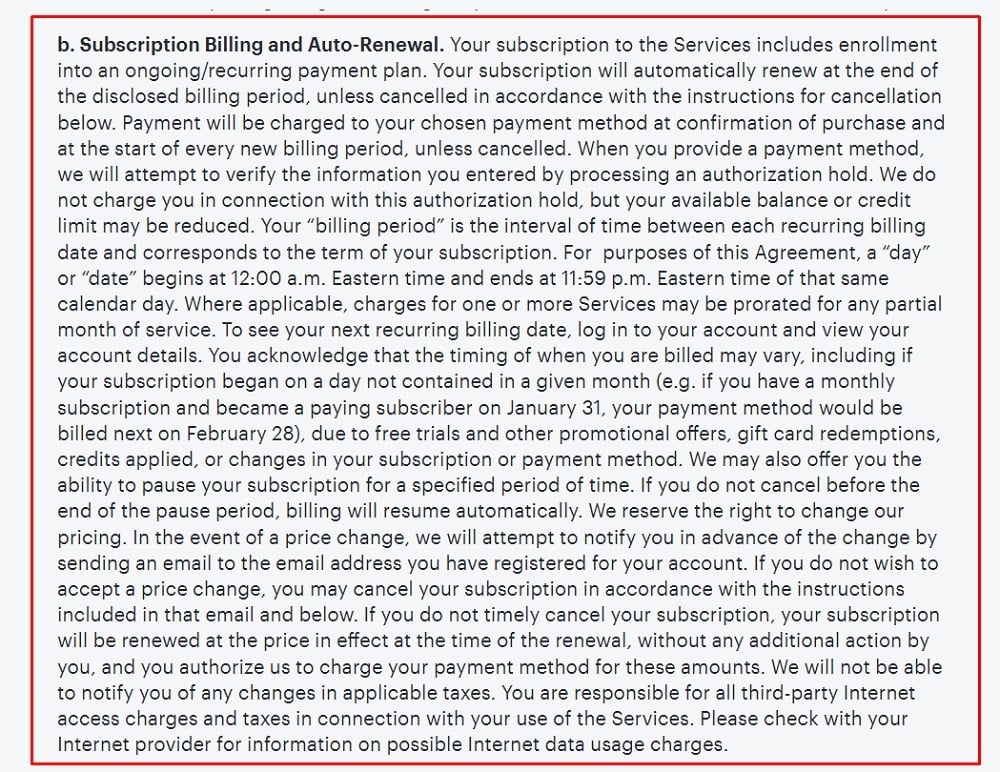
Auto-Renewal Period
Your auto-renewals clause should clearly describe how long the auto-renewal period is and what actions users need to take in order to end it.
Netflix's Terms of Use agreement includes a Membership section that lets users know that their memberships will auto-renew indefinitely until they decide to cancel:

And finally, we'll look at payments clauses and how to best construct and use them in your user agreement.
What Information is Included in a Payments Clause?

A payments clause is used to inform users about what payment methods you accept, any additional fees users might be charged, whether payments made can be refunded, what happens if a payment method is declined, and how to cancel payments.
Payment Methods
Your payments clause should let users know how they can pay you for your services.
The Processing and Payment section of the The New York Times Terms of Sale agreement applies to both one-time purchases and digital subscriptions, and lets users know that it accepts payment via credit card, PayPal, or digital wallet services:
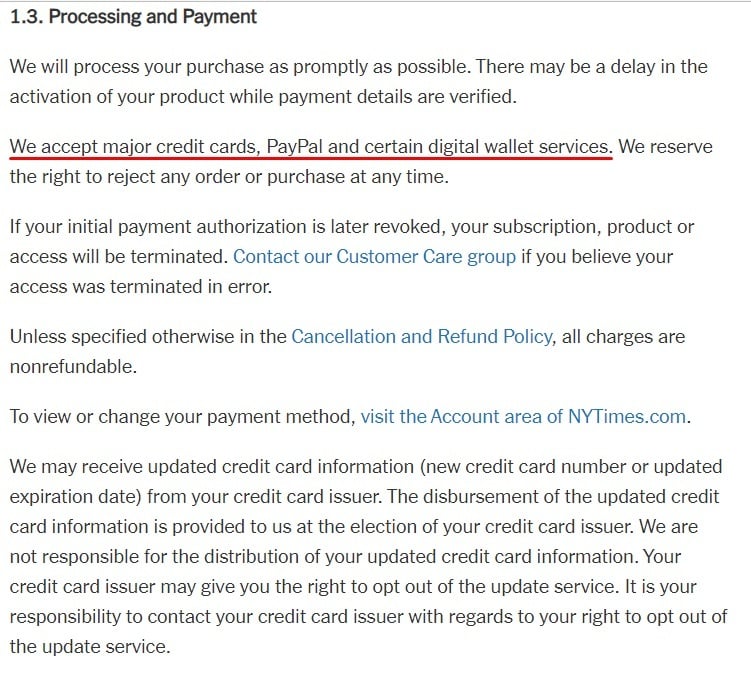
Canceling a Subscription
It's important to let users know how they can cancel their subscriptions, as well as when the cancellation will go into effect, and whether there are any fees associated with ending the subscription.
The Cancellations and Refunds section of Hulu's Subscription Terms clause describes what steps users need to take in order to cancel their subscriptions:
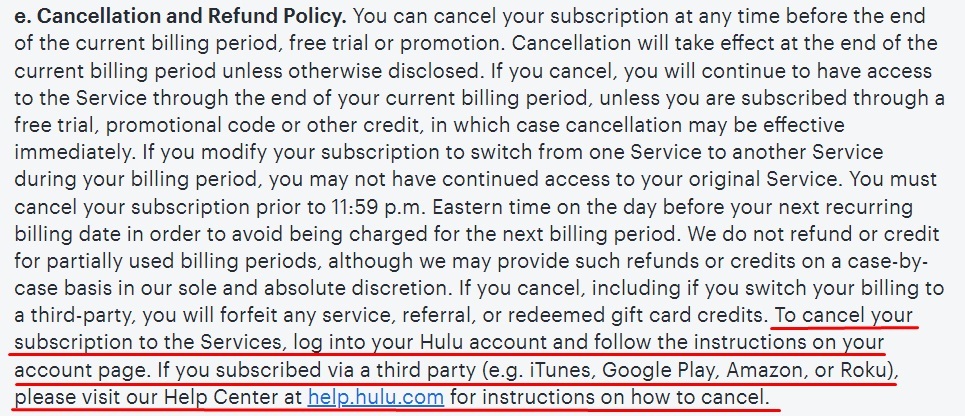
Declined Payments
You will need to let users know how you deal with payments that cannot be processed, and what happens when a payment doesn't go through.
Hulu's Subscription Terms clause contains a Payment Details section, which informs users that Hulu is authorized to contact their payment provider if their card details are set to expire, as well as to try more than once to charge a payment method if the initial attempt didn't go through. If a payment method fails, Hulu reserves the right to terminate the user's account, and the user will be responsible for any owed amount:
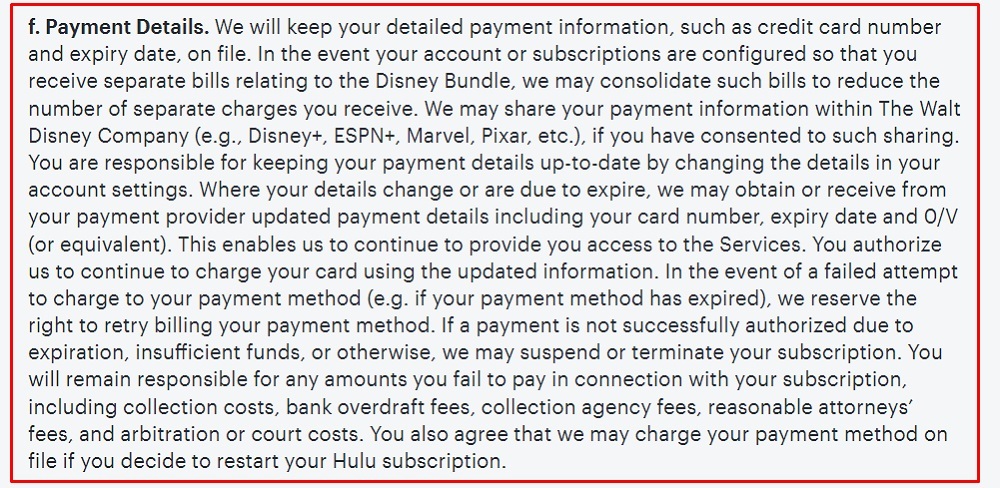
Additional Fees
You should make sure that users are aware that they are responsible for any associated fees that may apply to their subscription.
Webflow's Terms of Service includes a Billing and Payment clause that lets users know what fees and taxes they are responsible for paying, when they can expect to be billed when making an upgrade, when they can expect to be billed for a monthly or yearly payment plan, and that charges are nonrefundable:
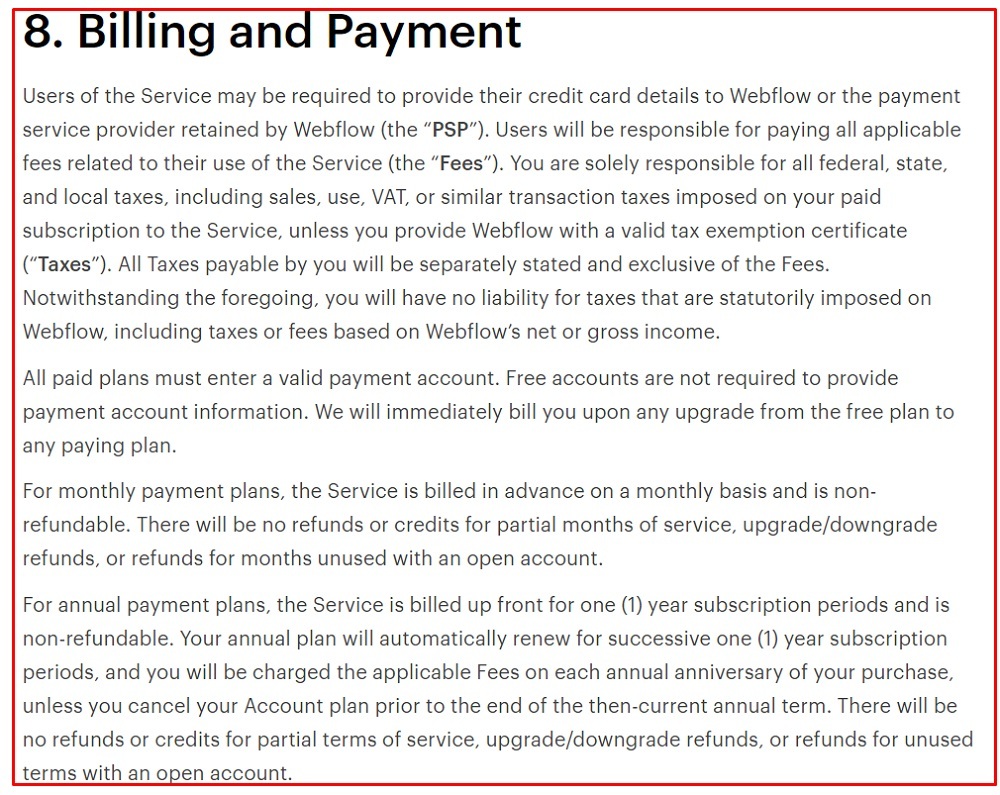
Now that you have an overview of these types of clauses, here's a summary of when the best time to use them would be.
Where Should You Put Subscriptions, Auto-Renewals, and Payments Clauses?

You can include these clauses within your Terms and Conditions agreement, your End User License Agreement (EULA), or your general User Agreement.
These legal agreements serve to provide a layer of protection for your business, as well as inform users what their rights and responsibilities are when it comes to using your products or services.
Wherever you put your subscriptions, auto-renewals, and payments clauses, you need to make sure that they are clearly written and easily accessible.
Summary
Subscriptions, auto-renewals, and payments clauses contain information that users need to agree to in order to use your business's services.
Subscriptions clauses cover the subscription timeline and information about when your regular subscription price goes into effect and when users can expect to be billed after a promotional period.
If you have a lot of information to share about your subscription process, you might create a Subscription Terms agreement to use instead of a subscription clause.
An auto-renewals clause is used to let users know what your billing terms are when it comes to auto-renewals and when they can expect their subscription to renew.
A payment clause informs users what kind of payment methods your business accepts, how users can cancel a subscription, what happens if a payment isn't processed, and whether there are any additional fees or taxes that users may be responsible for.
You should use subscriptions clauses whenever you provide a service or product that users must pay for on a regular basis in order to receive.
You should use auto-renewals clauses whenever you use a billing model that automatically charges users without requiring any further action on their part.
You should use payments clauses whenever you accept payments of any kind for your products or services.
Most businesses put their subscriptions, auto-renewals, and payments clauses within their Terms and Conditions agreements, EULAs, or User Agreements.
When writing your own clauses, you will need to make sure that you include certain information within each clause.
Subscriptions clauses should let users know:
- When the subscription begins and ends
- How users can cancel subscriptions
- How promotional periods segue into regular subscriptions
Auto-renewals clauses should include information about:
- What happens when users sign up for a service with an auto-renewal billing model
- How long users will continue to receive the service after the initial sign-up
- How the billing cycle works
Payments clauses should inform users about:
- How they can pay you
- How they can cancel recurring payments
- Fees that users may be responsible for
- How you handle refunds
- What happens if their payment is declined

Comprehensive compliance starts with a Privacy Policy.
Comply with the law with our agreements, policies, and consent banners. Everything is included.
